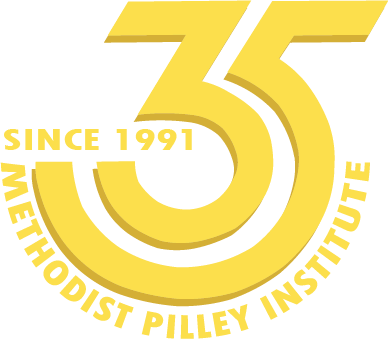|
“My lecturer repeatedly asked us to confirm if we were sure about taking up the ECE programme. Once we take it up, we will face problems and challenges in dealing with children, especially difficult ones.
“Honestly, I did not think about it at first, but since the question was put to me, I had to truly think about it, and the conclusion was, I have no problem at all,” he pointed out.
In the Diploma in ECE, there is no examination. However, students are required to undergo field experience every semester – 20 hours for a short semester and 40 hours for a long semester.
This means that while they learn theories in class, students are also trained hands-on to be ECE teachers at kindergartens every semester. This enhances their learning, making them ready to be ECE teachers upon graduation.
It turned out that the programme helped students grasp lessons effectively and gave them the opportunity to face their greatest challenges.
One of the most important lessons Timothy learned was that children learn when they are happy and having fun. Thus, well-prepared classes and lessons are crucial.
The attention span of children aged between two and three years old lasts only a few minutes.
When their attention span is gone, they start to play among themselves.
For Timothy, this is exciting because it teaches him to be creative in designing his classroom sessions, incorporating activities, challenges, and fun games that make learning enjoyable and engaging.
“You know that your class is a failure when they are not interested, and no matter what you teach, they do not care about whatever happens in the class anymore,” he pointed out.
Another thing he learned is the importance of seeing things from the children’s perspective when talking to them.
He said that talking at their level will put them at ease, and the chances of them listening to adults are higher.
Another important lesson is to always keep an eye on children to ensure no accidents happen.
Timothy, who is currently in his final year, said he has been working full-time as a teacher assistant at Methodist Child Care Centre (MCCC) since January 2024.
He said that while lesson planning can be challenging, there is a psychological barrier he needs to overcome – cleaning a child’s bottom.
“For me, I think that is the hardest part, psychologically,” he said.
The Diploma programme covers a variety of aspects, from child development to infant and toddler care, foundations of early childhood education, creative expression through art, and more.
From challenges to fears, nothing beats the fun of observing and understanding how certain children behave.
For example, Timothy has observed that every child cries differently. Crying is part of communication among toddlers – something that adults might not understand.
According to him, sometimes they just pretend to cry because they want attention.
“Every moment is fun because they speak their baby language. I might not understand them fully, but after spending so much time together, generally, even if they do not verbally express themselves, through their gestures or eyes, I will know what they want,” he said.
However, he might have a problem deciding what to do with children who have separation anxiety from their parents – especially newcomers.
That’s because the anxiety might not come from the children only, but from the parents as well.
“It can be hard to decide whether to take the child away or let them stay with their parents because some parents may not want to part with their child. Of course, in the end, parents must let go, or they cannot go to work,” he said.
However, there is a possible solution to this. Timothy’s trick is to understand the child’s favourite song, toy, or pillow.
Bringing that familiarity to the class can be effective in calming the children’s emotions.
Asked what his plan after the Diploma is, he said he will continue with his degree but has yet to decide whether at MPI or elsewhere.
He believes a degree could help him further in his career.
He explained that the Diploma gives him some basic skills, but at the degree level, he will learn more about the growth and development of early childhood, psychology in education, art and craft, early childhood entrepreneurship, management, and so forth.
Timothy is aware that ECE is not the most lucrative job, but that does not mean the future is not bright for him.
“It does not mean that I can only be a kindergarten teacher. I can be a programme planner or event planner, continuing to bring value to society and children. So, I am not worried that I can only be a teacher forever,” he said.
While the workforce is predominantly female, viewing it as ‘women’s work’ is a misconception.
Young men like Timothy challenge that perception and prove that men also embody and model gentleness.
Their strong figures will also benefit children who lack positive male role models in their early years.
These are not gendered traits — they are human strengths.
Since the Diploma in Early Childhood Education was launched in 2007, MPI has produced more than 500 graduates from the programme.
As Methodist Pilley Institute (MPI) looks forward to its 35th anniversary next year, the institute will be celebrating this remarkable milestone with a series of activities highlighting 35 years of excellence, growth, and impact in education.
Stay tuned for an exciting line-up of events and programmes as MPI continues to inspire, nurture, and shape future generations.
|
